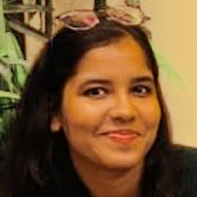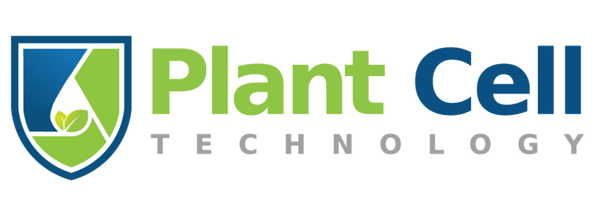
DKW Media: Definition, Use, and Applications
As a content and community manager, I leverage my expertise in plant biotechnology, passion for tissue culture, and writing skills to create compelling articles, simplifying intricate scientific concepts, and address your inquiries. As a dedicated science communicator, I strive to spark curiosity and foster a love for science in my audience.


Introduction
In vitro plants need nutrients to grow in a lab environment. These media are composed of micronutrients and macronutrients that promote the growth and development of plant tissues.
Here's a glimpse into five widely used culture media:
- Murashige and Skoog (MS) medium: This is the king of plant tissue culture media, invented in 1962. It's a versatile blend of inorganic salts, vitamins, and amino acids used for various applications like organ formation, callus culture, and micropropagation.
- Linsmaier and Skoog (LS) medium: Developed in 1965, LS medium is similar to MS but with a twist: it uses a modified vitamin mix with a higher concentration of thiamine. This tweak proved successful for tobacco cultures. LS serves similar purposes as MS media.
- Gamborg (B5) medium: Introduced in 1968, the B5 medium is ideal for callus and cell suspension cultures, particularly for soybeans. It has a distinct composition with higher nitrate and potassium, favoring root callus formation, compared to the lower ammonia content that supports cell growth.
- Nitsch and Nitsch (NN) medium: Developed specifically for in vitro anther culture of tobacco, NN medium (1969) boasts a high concentration of thiamine, biotin, and folic acid to promote anther callus formation.
- White's Medium: This pioneering medium (1963) was formulated for tomato root cultures. With lower salt concentration and higher magnesium sulfate compared to MS, White's medium is suitable for shoot and callus cultures, particularly for banana and carrot species.

What is DKW Media?
Basal mediums are nutrient solutions used to grow plant cells, tissues, or organs in a controlled environment. DKW media is also known as Driver and Kuniyuki Walnut medium. The media was originally developed for walnut micropropagation using nodal explant.
DKW is different from other basal mediums because it has a higher concentration of salts, specifically chemical macronutrients and minerals.
The solidifying agent used in DKW is called Gelrite, and researchers believe it plays a vital role in making DKW more effective than other mediums.
Two reasons for the effectiveness of DKW media:
- It uses a polysaccharide produced by Sphingomonaselodea bacteria, which reduces the need for another common solidifying agent, agar .
- It may enhance the responsiveness of plant cells to cytokinins, a type of plant hormone that promotes cell division and shoot growth.
While DKW seems promising, more studies are needed on various plant species to confirm its effectiveness definitively.
We now have DKW Media at the PCT Store – Shop here!
Composition of DKW Media
Given below is the list of each component of DKW media and their concentration:
|
Component |
mg/L |
|
Ammonium Nitrate |
1416 |
|
Boric Acid |
4.8 |
|
Calcium Chloride |
149 |
|
Calcium Nitrate |
1367.47 |
|
Copper Sulphate |
0.25 |
|
EDTA Disodium Salt |
45.4 |
|
Ferrous Sulphate |
33.8 |
|
Glycine |
2 |
|
Magnesium Sulphate |
361.38 |
|
Manganese Sulphate |
33.5 |
|
Myo-inositol |
1000 |
|
Nicotinic Acid |
1 |
|
Nickel Sulphate |
<0.250 |
|
Potassium Dihydrogen Phosphate |
265 |
|
Potassium Sulphate |
1559 |
|
Sodium Molybdate |
0.39 |
|
Thiamine Hydrochloride |
2 |
|
Zinc Nitrate |
17 |

Applications
DKW media use in walnut micropropagation
DKW has been proven superior to other mediums for increasing the number of shoots in Persian walnut (Juglans regia L.) and black walnut (Juglans nigra L.). This means that using DKW medium can result in more walnut shoots growing in a shorter period.
DKW use in Cannabis micropropagation (over MS media)
While a well-established protocol using Murashige and Skoog (MS) basal medium with thidiazuron (TDZ) exists for cannabis shoot multiplication, researchers observed limitations in their lab. Cannabis grown on MS-T05 medium exhibited poor health, low multiplication rates, and inconsistency across cultivars.
This led them to explore alternative basal media. DKW medium emerged as a promising option during initial screening, producing visibly healthier explants compared to MS. Further studies are underway to confirm DKW's effectiveness across various cannabis genotypes and pinpoint the specific factors contributing to its success.
The different composition of DKW, particularly higher levels of sulfur, calcium, and copper compared to MS, might be responsible for this positive effect. Future research aims to optimize DKW further and refine other aspects of the propagation system for even better results.
DKW Media Use In Woody Plant Micropropagation
DKW medium is a promising option for woody plant micropropagation due to its high sulfate content, which has been linked to increased shoot multiplication. Studies have shown that sulfate concentrations above 2.85 mM are crucial for enhanced shoot multiplication in woody fruit trees. This aligns with findings where high levels of magnesium, manganese, zinc, and copper sulfates improved shoot formation in red raspberries. Further research is needed to fully understand the mechanisms at play and optimize DKW for a wider range of woody plant species.

How To Use DKW Media In Your Tissue Culture Applications?
Follow the given steps to prepare DKW media for your tissue culture applications:
- Dissolve 5.36gms of the medium in 600ml of distilled or deionized water at room temperature (15-30°C).
- Rinse media vial with small quantity of distilled water to remove traces of power.
- Add the desired heat stable supplements before autoclaving.
- Continue stirring until the powder has dissolved.Make up the final volume to 1000ml with distilled water.
- Mix Gently, heat and rotate between intervals until the solution becomes clear. Do not boil, reheat and allow to cool below 50°C during dispensing. Dispense the medium into suitable containers, plug or cap, then autoclave at 15lbs (121°C for 15 minutes.
- Cool the autoclaved culture vessels containing medium to 45-50°C and aseptically add desired sterile heat-labile substrate.
- Mix well and aseptically dispense desired quantity of the media in sterile culture vessels.

NOTE: Some times media does not dissolve completely unless the pH is reduced. For these, lower the pH to about 3.0 to facilitate dissolution of media. The pH of medium is adjusted by using 1N HCL/ 1N NaOH/ 1NKOH.
Need High-Quality Tissue Culture Reagents For Your Tissue Culture Applications? Plant Cell Technology is Your Partner!
We're thrilled to announce a new addition to our product lineup at the PCT Store – DKW Medium With Vitamins is now available!
Our store already features essentials like MS media, agar, gellan gum, and the innovative Biocoupler™, as well as culture vessels and masks to facilitate your processes. With the addition of DKW Medium, you can now access an even broader range of high-quality supplies to enhance your tissue culture projects.
Whether you're running a small lab or a large commercial operation, our expert consultations are designed to deliver instant solutions to your tissue culture challenges.
Check Out DKW Medium With Vitamins: Discover DKW Medium Here
Plant Cell Technology is here to assist you at every step of your tissue culture journey, ensuring you have access to the best resources for successful outcomes.
You can either book a one-on-one consultation call or a physical visit to your lab. We help you at every step of the tissue culture process, ranging from establishing a tissue culture lab to preventing contamination problems or any specific challenges in your process.
Further, in the coming month, we are conducting a range of Master Classes for tissue culture enthusiasts like you. The class offers you the great opportunity to directly learn from the experts in the area, who have 10-30+ years of experience.
So, visit plantcelltechnology.com today and learn more about our products and services and how they help you excel in your tissue culture processes.
Happy Culturing!
Blog Categories
View by Level
Popular Blogs

Exploring Somatic Embryogenesis: Techniques and Applications
What Is Somatic Embryogenesis? Before we talk about somatic embryogenesis, do you know the difference between somatic cells and zygotic...
Read More
DKW Media: Definition, Use, and Applications
Introduction In vitro plants need nutrients to grow in a lab environment. These media are composed of micronutrients and macronutrients...
Read MoreSubscribe to Our Newsletter
1 comment
Hola amigo, que medio recomiendas para meristemas de orquideas?









Join the conversation
Your email address will not be published. Required fields are marked